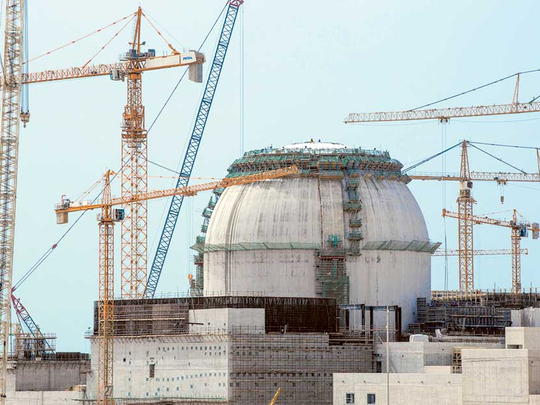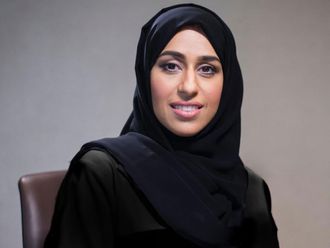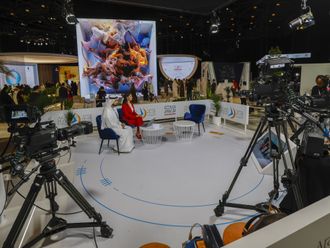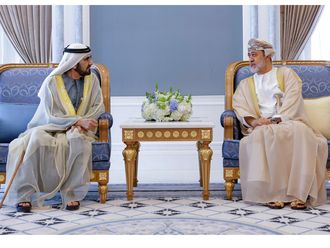
Dubai: The UAE’s four-reactor Barakah Nuclear Power Plant project now under construction is expected to provide up to 25 per cent of the country’s electricity needs and will save 12 million tons in carbon emissions every year.
Started in 2012 at a price tag of Dh89 billion ($24.2 billion), the peaceful nuclear power plant was designed for a lifespan of up to 60 years.
An original construction timetable set the first nuclear reactor to be ready by May of this year with the remaining three reactors falling into step each year until Barakah plant’s full completion in 2020.
The first of the four reactors is 94 per cent complete while the remaining three units are 78 per cent complete, said Emirates Nuclear Energy Corporation (Enec), the body charged with overseeing the construction and operation of the new facility.
In July of last year, Enec inked a new operating support service agreement with Korea Hydro and Nuclear Power (KHNP) whose technology — the Advanced Power Reactor 1400 (APR1400) — was chosen to power the Barakah plant.
Each reactor can produce up to 1,400MW and with all four operational, is enough to power a major US city for a day.
Under the agreement, the Korean firm will send up to 400 of its expert nuclear technicians to support operations of the plant until 2030.
As part of stringent safety measures mandatory under the UAE’s Federal Authority of Nuclear Regulation (Fanr), Korean experts will be required to pass regulatory exams to be licensed to operate and manage APR-1400 technology in the UAE.
Mohamed Al Hammadi, Enec CEO, said at the time that, “Enec continues to progress construction to the highest international standards of safety, quality and excellence.”
He noted that the operations agreement with Korean Hydro “provides the framework for KHNP to share its knowledge that it has accumulated throughout its 40 years of experience in operating 25 nuclear power plants in South Korea, with Enec.”
“We are entering a crucial phase in the development of the Barakah plant and we are looking forward to working with the experts from KHNP to ensure the operational readiness of the Barakah plant,” said Al Hammadi. “Over the next decade and beyond, the agreement will continue to build on and enhance the existing long-term nuclear energy partnership between the UAE and South Korea,” added Al Hammadi.
The construction of the Barakah NPP commenced in 2012, and is scheduled for completion in 2020.
Korean reactor builders said in a brochure that their APR1400 “incorporates a number of design modifications to meet the needs for enhanced safety and economic goals and to address new licensing issues including mitigation or severe accidents”.
The UAE federal nuclear authority Fanr, meanwhile, has assured residents that safety is paramount at the facility and will meet all international standards.
A new national emergency communications plan finalised last year will automatically notify UAE residents in case of an accident via mosque loudspeakers, mobile phone SMSs, media alerts, police advisories and road signs to minimise health impacts from any possible radiation exposure.
Christer Viktorsson, director-general of Fanr, told Gulf News in an earlier interview that public transparency is a critical component of ensuring public safety, a major plank in the regulator’s oversight of the UAE’s nuclear energy programme.
“Fanr nuclear safety regulations aim to reduce the risks of a nuclear incident or emergency to the maximum extent possible. But it is still prudent to have systems in place to respond to an unlikely accident, so Fanr requires users of nuclear materials in the UAE to prepare such measures,” Viktorsson said.
So far, the national nuclear power strategy is well received by residents, according to poll results released last week that suggest support for UAE’s nuclear power plan is growing with eight out of 10 people in favour.
The survey produced “some of the highest favourability rates for nuclear energy in the world, and is now at 83 per cent — an increase of 13 per cent since the last poll conducted in 2013,” said Enec.
A further 92 per cent of the 750 respondents polled by market research firm Kantar TNS said they believed the new nuclear energy scheme was important for the country.











